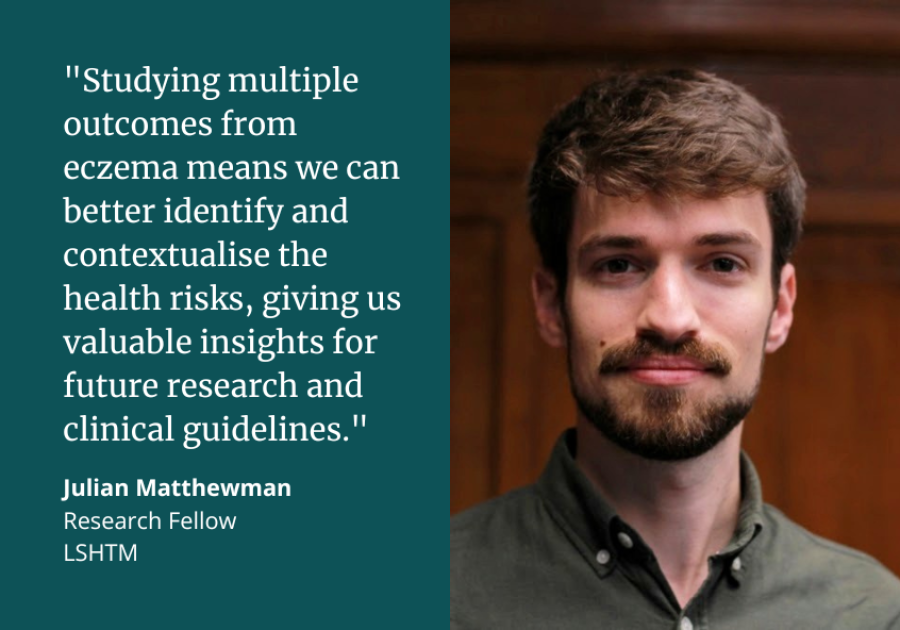
New research led by researchers from the London School of Hygiene & Tropical Medicine (LSHTM) provides a comprehensive evidence resource on adverse health outcomes associated with atopic eczema (also known as eczema). Eczema is a very common condition affecting one in ten adults and one in five children with major effects on wellbeing, self-esteem and sleep quality. Given that eczema is so common, any associations with other health conditions are very important and may represent a significant cost for healthcare systems.
Uniquely, this new work examined multiple conditions that may occur in individuals with eczema. The study utilised one of the largest datasets ever used to study eczema-related outcomes, which provided the opportunity to give a comprehensive overview of adverse health outcomes, including rare outcomes.
The study confirmed well-known associations between eczema and other atopic conditions (e.g., asthma, hay fever) and immune-mediated skin conditions, such as alopecia. However, it also uncovered strong associations that are less commonly recognised in clinical guidelines, for example gastrointestinal conditions such as inflammatory bowel diseases (e.g. Crohn's Disease, ulcerative colitis).
On the other hand, the study suggested that associations with some other outcomes (such as osteoporosis) are weaker than previously thought and may be explained by differences in how often people with and without eczema visit their GP or confounding factors.
Dr Julian Matthewman, lead author from LSHTM, said: "Using population-based data enabled us to analyse multiple eczema-related outcomes in a way that adjusts for confounding factors and includes sensitivity analyses to ensure robustness. This allows us to draw meaningful comparisons relevant for clinical practice across a wide range of conditions."
Professor Sinéad Langan, senior author from LSHTM and a consultant dermatologist, said: "This body of work transforms how we understand health conditions associated with eczema. It is an approach that could be used more broadly for other health conditions, improving evidence for clinical guidelines and practice in a transparent way that can be updated to incorporate new knowledge."
According to the authors, the approach to studying multiple outcomes offered several advantages compared to traditional studies, including efficiency of research and the ability to better draw comparisons between outcomes. While studies focused on individuals outcomes are still needed to explore associations in depth, this work provides a baseline for these in-depth studies and a reference point for research on the topic in general.
If you enjoyed this article and would like to build a career in global health, we offer a range of MSc programmes covering health and data, infectious and tropical diseases, population health, and public health and policy.
Available on campus or online, including flexible study that works around your work and home life, be part of a global community at the UK's no.1 public health university.
